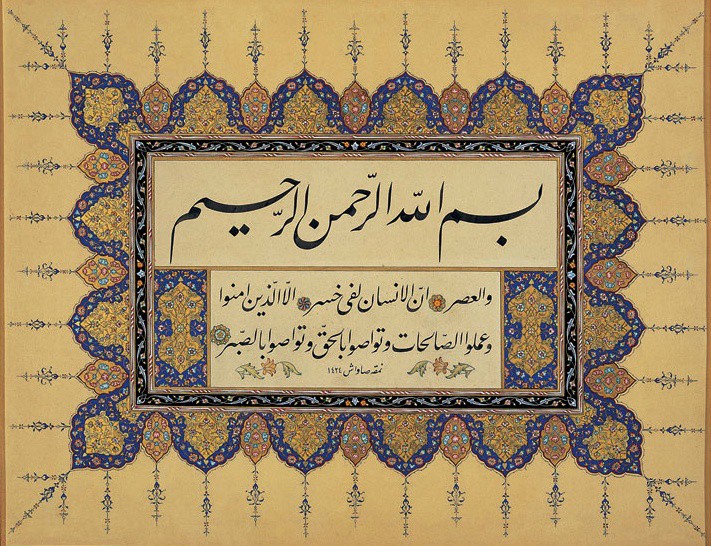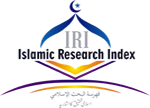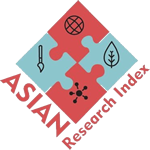The Qur’anic Approach towards Human Guidance
ہداىتِ انسانى کا قرآنى اسلوب سورۃ العصر کى روشنى میں تجزىاتی مطالعہ
Keywords:
Book of Guidance, social affairs, ethics, responsibility, society affairs, comprehensiveAbstract
The purpose of this research is to acquaint the misguided and heedless people with the Book of Guidance of Allah Almighty. The method used for the research was descriptive and standard. A review of the literature reveals that the heavenly book is an excellent guide to human life. All the principles of life, rituals of worship, social affairs, ethics, etc. are present in the Quran. Research has shown that there is no guidance except the Book of Allah. Then why are Muslims going astray today? We must contemplate over it. There is a need for every Muslim to study the Holy Qur'an with the same sense and responsibility that this divine book is a perfect guide for human life. The Qur'an is the only book of Allah, which does not belong to any particular class, nation or race, but is the guarantor of the growth and guidance of all mankind. This is the complete way of life, whose eternity and universality will never decay, if the human caravan is moving on a path other than this, and then it is sure to get lost from the straight path and will prove its divine seal on its destruction. Surah Al-Asr is the surah in which Allah Almighty has summarized the guidance of the Holy Qur'an. The Surah alone is enough to motivate in actions such as invitation and guidance and encourages perseverance in these matters.
References
حوالہ جات
۔ سورة البقرۃ:2/185
۔ سورة البقرۃ:2/2
۔ سورة النمل:27/2
۔ سورة لقمان :31/3
۔ أبو بكر بن أبی شيبہ، عبد الله بن محمد بن إبراہيم، الكتاب المصنف في الأحاديث والآثار، ،مكتبہ الرشد ،الرياض، الطبعہ الأولى، 1 409ھ،كِتَابُ الْفَضَائِلِ، بَابُ مَا أَعْطَى اللَّهُ تَعَالَى مُحَمَّدًا صَلَّى اللهُ عَلَيْهِ وَسَلَّمَ ،حدیث: ۳۱۷۳۸،ص: 6/318
۔ سورة السجده:32/ 24
۔ سورة الدهر:76/ 3
۔ سورة التغابن:64/11
۔ سورة يونس:10/ 9
۔ الشافعی،أبو عبد الله محمد بن إدريس،تفسير الإمام الشافعی، دار التدمريہ،المملكہ العربيہ السعوديہ،الطبعہ الأولى2006 م ، ص:3/1461
۔ الفضل بن الحسن الطبرسی،مجمع البیان فی تفسیرالقرآن،دار المرتضی،بیروت،الطبعۃ الاولی 2006ء،ص:10/334
۔ حمیدالدین فراہی،تفسیرنظام القرآن وتاویل الفرقان بالفرقان،ص:383
۔ ابوالاعلی مودودی،تفہم القرآن،ادارہ ترجمان القرآن،لاہور،1997ء،ص:6/449
۔ ابن كثير،أبو الفداء إسماعيل،تفسير القرآن العظيم،دار طيبہ للنشر والتوزيع،الطبعہ الثانيہ، 1999م،ص:8/480
۔ فخر الدين الرازی،أبو عبد الله محمد،مفاتيح الغيب التفسير الكبير،دار إحياء التراث العربی،بيروت،الطبعہ الثالثہ،1420 ه، ص:32/278
۔ معارف القرآن،ص:8/812
۔ أبن حيان الأندلسی،محمد بن يوسف، تفسير البحر المحيط،دار الفكر،بيروت،الطبعہ 1420ھ،ص:9/20
۔ سورة ال عمران:3/185
۔ سورة الحجرات:49/ 15
۔ سورة حم السجدہ :41/ 30۔31
۔ سورة العنکبوت :29/2۔3
۔ سورة آل عمران:3/110
۔ أبو الحسين مسلم،صحيح مسلم،دار الجيل،بيروت،کتاب الایمان،باب بَيَانِ كَوْنِ النَّهْىِ عَنِ الْمُنْكَر مِنَ الإِيمَانِ، ص:1/50
۔ سيد قطب إبراهيم حسين،في ظلال القرآن،دار الشروق،بيروت،القاهرة،الطبعةالسابعة عشر1412 هـ ،ص:6/3964
۔ مفتی محمدشفیع،معارف القرآن،ادارہ المعارف،کراچی،اکتوبر2005ء،ص:8/811
۔ مفتاح دار السعادة ومنشور ولاية العلم والإرادة، ابن قيم الجوزيہ، دار الكتب العلميہ،بيروت، سنہ الطبع : 1419ھ ، 1998ء، ص:1/59
۔ تفسير القرآن العظيم ،ابن كثير،أبو الفداء إسماعيل،دار الكتب العلميہ،بيروت،الطبعہ الأولى1419ھ،ص:8/456
۔ سورة الحشر:59/21
۔ علامہ اقبال، ضرب کلیم،شیخ غلام علی اینڈسنزپبلشرز،لاہور،ص:44

Published
Issue
Section
Copyright (c) 2020 Al-Meezan Research Journal

This work is licensed under a Creative Commons Attribution 4.0 International License.



